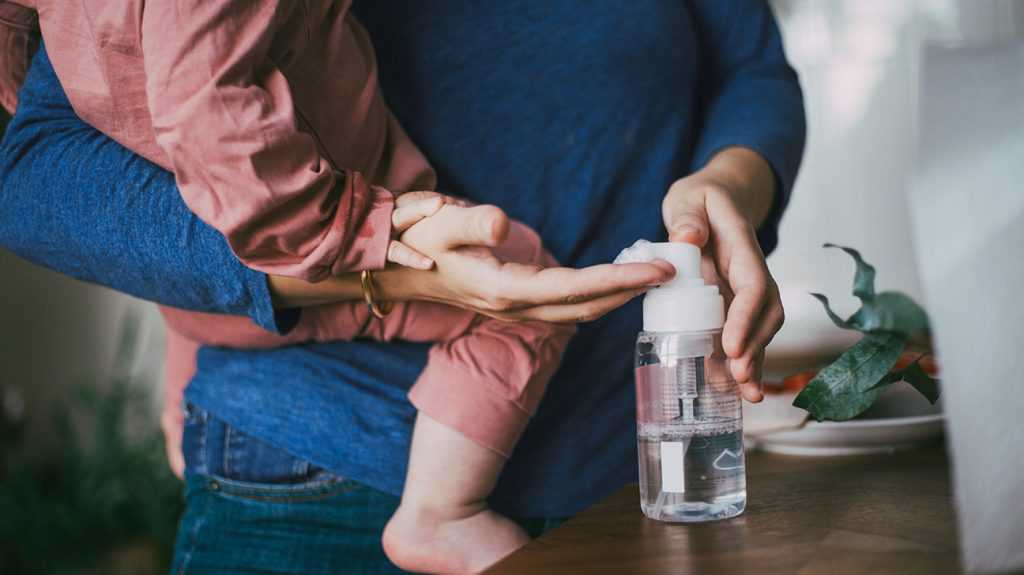How have COVID-19 pandemic lockdowns damaged our immune systems?
02 May, 2021

The world is greater than a year in to the COVID-19 pandemic, so many persons have been living with lockdown restrictions, quarantine periods, and physical distancing for a protracted time frame. Hand sanitizer and masks are rife, and the normal cold has not felt so common. But exactly what will these changes in lifestyle do to your health?
In this article, we look at what effect living physically distanced from other people may have on the immune systems of adults, children, and infants born during the pandemic.
Some persons have voiced concerns over whether their immune systems are being challenged, given that everyone is no more physically mixing.
Might our immune systems consequently “forget” how exactly to fight off disease-causing agents? For adults and teenagers, there is the right news: This is not how immunity works.
According to MIT Medical, by the time a person reaches adulthood, their immune system has already had contact with a lot of bacteria and viruses and can mount an attack against these invaders.
Due to this, the immune system has already learned how exactly to destroy these microbes and can not forget, even in the wake of long-term lockdowns.
But what about youngsters, whose immune systems are still in the training phase?
Children and the ‘hygiene hypothesis’
Many parents and caregivers will know about the so-called hygiene hypothesis, regardless if they do not know it by name.
It is fundamentally the idea that you will find a link between the rise in allergic conditions and reduced exposure to microbes during childhood caused by hygiene measures, such as for example frequent hand washing, introduced to safeguard children from infection.
Dr. David Strachan first proposed this link in an article that appeared in the BMJTrusted Source in 1989.
In a paper that appeared in the journal Perspectives in Public Health in 2016, Prof. Sally F. Bloomfield and colleagues examine Dr. Strachan’s original paper.
They write: “The immune system is a learning device, and at birth it resembles a computer with hardware and software but few data. Additional data should be supplied through the first year of life, through connection with microorganisms from other humans and the environment.”
They continue:
“If these inputs are inadequate or inappropriate, the regulatory mechanisms of the disease fighting capability can fail. Subsequently, the system attacks not only harmful organisms [that] cause infections but also innocuous targets such as for example pollen, house dust, and food allergens leading to allergic diseases.”
Prof. Jonathan Hourihane, from the RCSI University of Medicine and Health Sciences in Dublin, Ireland, adds that the increases in eczema, asthma, hay fever, and food allergies in the last 30 years have likely resulted from decreased contact with infections.
“We want to see children playing on the floor, getting dirty, and exposure to lots of individuals in a large amount environments,” he says. “The results of this is normally a strong immune system, linked to a wholesome population of gut bacteria, called the microbiome.”
With this thought, should parents of infants or young children be concerned about the consequences of physical distancing and lockdowns on the immune systems?
Yes and no.
Some microbes are friends, others aren't
Prof. Bloomfield and colleagues write that while “evidence supports the concept of immune regulation driven by microbe-host interactions, the word ‘hygiene hypothesis’ is a misleading misnomer. There is absolutely no good evidence that hygiene, as the general public understands, is accountable for the clinically relevant changes to microbial exposures.”
Their paper lays out the way the idea that we've become “too clean” has remained in the general public mind. Writing in 2016, Prof. Bloomfield and team prophetically note that this is also “happening at the same time when infectious disease issues mean that hygiene is now more, instead of less, important.”
This is particularly relevant for respiratory viruses such as for example SARS-CoV-2, which in turn causes COVID-19. Because viruses aren't treatable with antibiotics, protecting against them with hygiene practices such as for example washing the hands and cleaning surfaces is paramount.
The authors point to the post-hygiene hypothesis theory known as the old friends (OF) mechanismTrusted Source.
Introduced in 2003, it shows that the important exposures to microbes in early life aren't actually colds, measles, or other childhood ailments, but rather those microbes which were already around during the hunter-gatherer period, when the immune system was evolving.
These microbes include species that live in both indoor and outdoor environments, plus they come from your skin, gut, and respiratory tracts of other folks.
“OF exposures are vital,” say the researchers, “because they connect to the regulatory systems that keep the immune system in balance and prevent overreaction, which can be an underlying reason behind allergies. Diversity of microbial exposure is key.”
They note that the main times in life for OF exposure are during pregnancy, delivery, and the first months of infancy. They also add that continuing exposure from the mother and siblings is essential.
Likewise, having pets escalates the overall diversity of microbes in the house.
Source: www.medicalnewstoday.com
